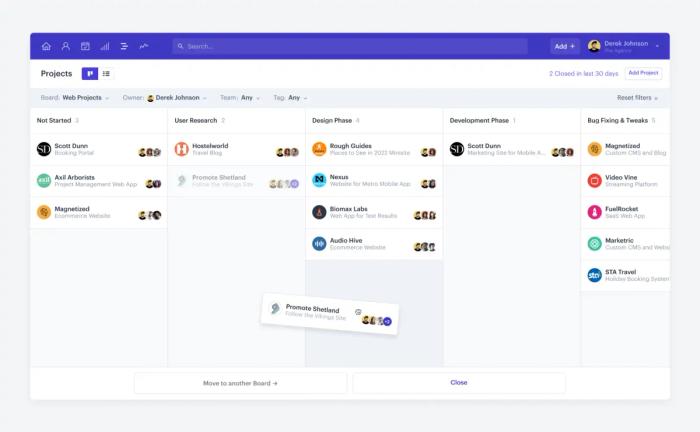Nowadays it’s not only about generating sales, but about doing so in a regular and sustainable way. It’s also important to discover the source that’ll be the most beneficial; growing sales per se is great, but smash and grab tactics aren’t sustainable in the long run. So, what’s the solution here? High velocity sales tactics could be one possibility. In this blog post we’ll discover what it is and why it matters for your business..
What is high velocity sales?
High velocity sales (HVS) is a technique designed to accelerate the sales process. It integrates B2C sales tactics and employs them in the B2B selling process by leveraging structured sales cadences, automation, and data-driven insights.
As such, businesses employing HVS can efficiently manage and engage with qualified leads or prospects.
The primary goal of HVS is to increase sales team productivity, close deals faster, and maximize revenue opportunities.
High velocity sales landscape
Have you ever wondered how some digital sales reps seem to close deals faster than others? There could be many reasons for this or tactics they employ, and high velocity sales may well be one of them.
Because that's the main goal of this process: to speed up sales.
Picture a sales cycle as your roadmap. It's a carefully designed series of touchpoints with potential customers, which could be:
- Emails
- Calls
- Social media interactions
Using all of these points of contact is crucial because it keeps the sales reps on track and ensures no potential lead gets missed.
High velocity sales strategy vs. regular sales strategy
Here’s the differences between these two methods.
High velocity sales
- Sales activities focus on accelerating the sales cycle by automating repetitive tasks. Thanks to this approach, sales reps efficiently engage with a high volume of prospective customers
- Focuses on identifying and prioritizing qualified leads and streamlines the process of converting them into customers
- Often comes with a bundle of additional features that may incur additional costs.
Regular sales strategy
- Typically involves more manual labor and a slower sales cycle, not leveraging automation as extensively as the high velocity approach.
- While lead qualification is important, regular strategies may not place as much emphasis on it as high velocity strategies do
- The regular approach may not come with additional options or tools, so there are potentially fewer additional costs at the start.
Key benefits of high velocity sales
Now let’s get down to the key benefits of HVS that can transform the way sales teams operate.
#1 Smart lead scoring

With the support of HVS, artificial intelligence, and the right tools, sales teams can intelligently score leads in order to identify and prioritize valuable prospects who are most likely to convert.
Instead of spending time and resources on serving potential leads who probably won’t move further down the sales funnel, salespeople take care of those that have the greatest chance of being turned into deals sooner or later.
#2 Improves team productivity
HVS eliminates the need for constant multitasking. Employees can automate tasks such as email campaigns and follow-up emails with pre-written email templates, since doing so allows them to work more efficiently and dedicate their time to meaningful interactions.
Due to having fewer manual tasks, overall sales productivity is enhanced, and your team can focus on other business priorities.
#3 Streamline sales processes
HVS is all about optimizing sales. An improved sales journey ensures that every potential customer receives personalized and timely communication through various digital channels to maximize engagement and improve sales performance metrics.
As a result, reps find it easier to stay on track, follow up with prospects consistently, and maintain a well-organized sales pipeline.
Top 3 tactics for implementing a high velocity sales strategy
Now you know what HVS is, let's examine the top three tactics for implementing one.
1. Don’t work on your own: invest in high velocity sales tools
Success often hinges on the sales automation tools and technologies that you have at your disposal. Implementing an HVS business strategy demands a shift towards a more automated and efficient approach.
Become more productive with high velocity tools
To maximize the potential of your high velocity sales strategy, you need the help of the sales apps.
These integrated tools will automate repetitive tasks and facilitate workflow management. They act as crucial machinery in your sales arsenal and drive efficiency and value across your business.
With many key features for email marketing campaigns, tasks and calendars, projects, sales pipelines, and even sales analytics, high velocity sales tools help you focus on building connections and closing deals.
Prevent big sales opportunities from slipping away
Traditional channels alone may not be sufficient to capture all potential business opportunities. In order to prevent those big prospective sales from slipping through the cracks, you must employ cutting-edge solutions.
For instance, you could simply use Google Sheets to track large volumes of leads, but adding in some automated processes would make the workflow far more efficient. Thanks to automations, you'll gain automatic insights and minimize the risk of missing out on lucrative deals.
Also, imagine a world where no connection request or lead goes unnoticed and a simple popup window prompts a follow-up call at exactly the right moment. This is the essence of the high velocity sales model, where technology and strategy unite to drive sales success.
2. Don’t act spontaneously: develop a long-term plan for nurturing leads
If you're planning on nurturing leads effectively for the long haul, it's essential to have a well-thought-out plan.
Create a multi-channel lead nurturing strategy
A versatile sales-building approach involves engaging with prospects across channels, both online and offline. Sales models designed for both B2B and B2C guarantee that you don't rely on a single channel, but rather branch out to reach your audience through various touchpoints.
Thus, whether you want to send automated emails or contact clients via a phone call, a multi-channel strategy will facilitate effective communication and increase your chances of staying on your prospects' radars.
Follow up and nurture leads
Following up on leads is also a critical element.

You should concentrate on maintaining momentum and capitalizing on the initial interest generated, as leads can grow cold and valuable opportunities may be lost if you don't consistently follow up.
Timely and persistent follow ups keep your brand and offerings top-of-mind for potential customers. They demonstrate your commitment and interest in solving their needs.
Don’t neglect lead nurturing either.
It involves more than just sales cadence steps; the key is to build long-term relationships with your prospects.
If you nurture leads effectively, you’ll guide them through the sales funnel and turn them into loyal customers.
Choose the right metrics
You won’t be able to gauge the success of your HVS strategy accurately if you don’t measure the results, unfortunately.
And it's not about quantity; but quality.
For example, pipeline metrics help identify potential bottlenecks and optimize the sales process, while lead generation metrics measure the effectiveness of your lead acquisition efforts.
If you focus on these metrics, you can ensure that your HVS strategy is finely tuned and that every action contributes to achieving your sales objectives.
3. Don’t forget about your team: be on the same page
Being on the same page fosters a collaborative environment where everyone knows their role and the work they are doing. For that, you need both a skilled team and the right customer relationship management (CRM) system.
Make sure your team is trained
Sales managers need to double-check if the entire sales team understands the importance of HVS.
Their task is to train, coach, and even motivate reps by using performance metrics so that the whole team can understand the sales cycle, optimize it, and communicate effectively.
They must be sure that their sales professionals are well-equipped to close deals efficiently and effectively.
Use a solid CRM
With Capsule CRM, you can build stronger customer relationships, boost your sales, save valuable time, and work together better.

Capsule is a solution that makes everything easier. With many features, from the basic to the advanced, you will be able to collaborate more efficiently.
For example, our contact management software allows you to nurture relationships effectively as it keeps all your customer information in one organized place.
Capsule also offers a robust sales pipeline tool that helps you close more sales by tailoring your entire sales process.
Our sales analytics, meanwhile, let you see the big picture by providing insightful reports and helping you make more informed business decisions.
On top of that, Capsule simplifies your workflows with automations to make completing tasks quicker and easier.
Our CRM integrates with popular applications from Microsoft and Google, as well as connecting with tools like Zapier, Xero, Mailchimp, and more.
So, if you're looking to supercharge your high velocity sales strategy, Capsule is the way to go. It even comes with a free plan if you’re up for trying it out.
Addressing common challenges in high-velocity sales
High-velocity sales promise big wins, but implementing them isn’t always smooth sailing. Here’s how to tackle the bumps on the road and keep your sales team on track:
Resistance to adopting automation tools
Let’s face it: some sales reps hesitate to embrace new tech, viewing marketing automation tools as a burden instead of a boost. Complex tools frustrate teams and create bottlenecks instead of solutions. That’s why you should invest in tools that integrate into your workflow, like CRMs with built-in lead scoring, and pair them with hands-on training. When sales teams see how automation frees them to focus on closing deals and building connections, adoption becomes a no-brainer.
Balancing speed with personalization
A high-speed sales cadence can sometimes feel robotic. Avoid this by using sales cadences that blend automation with personalized touches. For instance, equip your sales managers with insights from customer data to help sales reps craft targeted messages that still hit deadlines.
Data overload and management issues
High velocity sales depend on accurate and up-to-date data. But without proper systems, sales productivity suffers due to cluttered spreadsheets and outdated info. Provide your team with a user-friendly CRM that simplifies data management so that they always have a clear picture of their leads.
If you address these challenges head-on, you can help your sales team turn high velocity into high success – without sacrificing personalization or efficiency.
Put your high velocity sales plan into action
Embracing high velocity sales strategies is the future of sales. This approach will help you leverage real time metrics, automate your list of tasks, and ultimately drive sales.
If you want to excel in this dynamic landscape, consider implementing our Capsule CRM platform for businesses. It’s one of the best ways to increase productivity and streamline sales processes.
Click here to see our tool and pricing details.
Frequently Asked Questions
A high velocity sales strategy leverages efficient sales processes and streamlined sales cadences to quickly convert prospects into customers, enhancing overall sales performance.
Velocity in sales refers to the speed at which sales teams move prospects through the sales pipeline, aiming for faster deal closures and increased revenue.
High velocity sales involve rapid, efficient sales processes with quick turnaround times, while low velocity sales have longer sales cycles and slower conversion rates.
An example of a high velocity industry is the tech sector, where sales reps frequently close deals quickly due to high demand and fast-paced market changes.
Average velocity sales measure the typical speed at which sales rep moves leads through the sales pipeline, balancing speed with consistent conversion rates.
To increase sales velocity, implement marketing automation tools, optimize sales cadences, and use previously successful leads to enhance conversion rates and efficiency.
The software-as-a-service (SaaS) market is a high velocity market where sales team members must quickly convert leads and maintain rapid sales cycles to stay competitive.
Yes, high velocity sales can solve business bottlenecks by emphasizing streamlining the sales cadence and optimizing processes, enabling faster conversions and improving overall efficiency.
It can be the best sales model for businesses aiming to enable high velocity sales with rapid deal closures and high efficiency, but it may come with a higher high velocity sales cost and require a suitable high velocity sales package to implement effectively.




